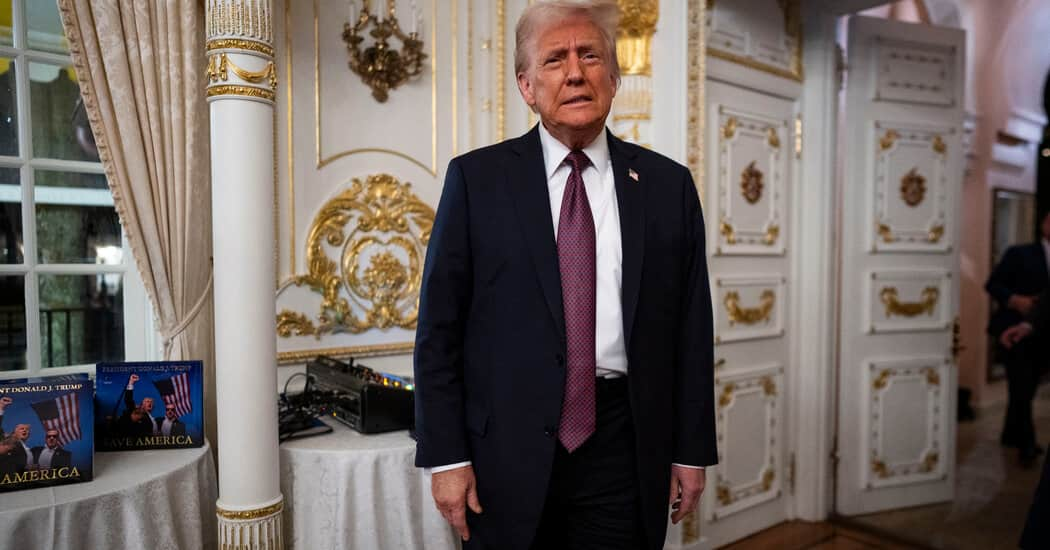The president-elect had said the Russian leader wanted to meet him to discuss the war in Ukraine. The Kremlin stopped short of that, saying it could only happen after he takes office.
The Kremlin said on Friday that Russia remains open to a meeting between President Vladimir V. Putin and President-elect Donald J. Trump, but that any concrete steps to set up such talks could be made only once Mr. Trump is sworn into office on Jan. 20.
Responding to comments made on Thursday by Mr. Trump, who said that Mr. Putin wants to meet him to discuss the war in Ukraine, the Kremlin’s spokesman reaffirmed Russia’s longstanding official position that Moscow is ready to talk.
Mr. Peskov added that the Kremlin’s understanding is that there is a “mutual readiness for a meeting,” but, he said, “it looks like things will start to move after Trump enters the Oval Office.”
Mr. Peskov did not confirm that Mr. Putin had requested a meeting with Mr. Trump or that one was being set up, as Mr. Trump said on Thursday night.
While asserting its territorial claim over its five regions in Ukraine, the Kremlin has been insisting that it would prefer diplomacy over war.
Ukraine and some of its Western allies have questioned Russia’s seriousness in offering to negotiate, and said that the Kremlin’s conditions actually represent a demand for Ukrainian capitulation.
After being largely isolated from the West for almost three years since the invasion of Ukraine, a meeting with the American president would represent a chance for Mr. Putin to negotiate with a friendlier American administration.
Mr. Trump has repeatedly said that he could resolve the Russia-Ukraine war within 24 hours after entering office, without saying how, but this week suggested that it could take up to six months.
Speaking at a news conference on Tuesday, Mr. Trump said that he was sympathetic with the Russian position that Ukraine should never join NATO, one of the main conditions put forward by the Kremlin to end the war.
Mr. Trump’s victory in November produced a wave of cautious optimism that the war could end soon, even if in an unstable cease-fire. But analysts have said that the process will be hard and tedious, and many in Ukraine and elsewhere fear that Mr. Trump might want to push through a deal at the expense of its capitulation.
In Russia, Giorgy Bovt, a political analyst, said that if a meeting between Mr. Trump and Mr. Putin happens too early, when “the conditions for peace have not yet matured,” it could “lead to greater escalation.”
“Both warring parties are still betting on continuing military action,” Mr. Bovt wrote in a post on Telegram, a popular messaging app. “They do not consider their forces exhausted.”
Tatiana Stanovaya, a senior fellow at the Carnegie Russia Eurasia Center, wrote on social media that “the higher the expectations” from the meeting “the riskier the game, most of all for Trump.”
Ivan Nechepurenko covers Russia, Ukraine, Belarus, the countries of the Caucasus, and Central Asia. He is based in Moscow. More about Ivan Nechepurenko
Source: www.nytimes.com
